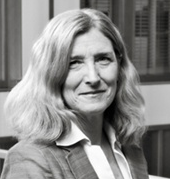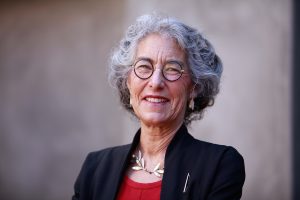Institutional Members
-

Virginia Ursin


Rick Johnson focuses on integrating policy and law with science, engineering, Big Data, and biomedicine to drive research and innovation and to enable problem-oriented solutions to global challenges. His current interests include: (1) synthetic biology, the engineering of biology, and the industrialization of biology; (2) the bioeconomy and next-generation production economy; (3) neuroscience and brain health, especially Alzheimer’s; and (4) policy issues for convergence, international S&T, and Big Data. Rick is the CEO and founder of Global Helix LLC, a thought leadership and innovative strategic positioning firm. After 30 years, Rick retired as Senior Partner at Arnold & Porter LLP in Washington, D.C., where he represented many of the leading research universities, foundations, and innovative multinational companies about enabling basic research, international collaborations, innovation strategies, and public-private partnerships through innovative approaches to law and policy. Johnson is a member of the Board on Life Sciences at the National Academy of Sciences (NAS) and the NAS Synthetic Biology Leadership Forum, and serves as Chairman of the NAS Bioeconomy initiative. He is a member of several other NAS initiatives: biomedical innovation and precision medicine; convergence and next-generation infrastructures; synthetic biology and the industrialization of biology; the BRAIN initiative; and the intersection of science and security issues. He also serves as the Chairman of the BIAC Technology & Innovation Committee at the OECD, and he recently was named one of the 14 global members of the new OECD Global Advisory Council for Science, Technology, and Innovation. In addition, Rick is the Chairman of Brown’s Biology & Medicine Council and is a member of the boards for EBRC, the Stanford BioFab and BioBricks Foundation, and the iGEM Foundation for global education. For many years, Rick served on the MIT Corporation Committee, and numerous university-industry boards. In addition to receiving his Juris Doctor degree from the Yale Law School where he was Editor of the Yale Law Journal, he received his M.S. from the Massachusetts Institute of Technology where he was a National Science Foundation National Fellow and MIT distinguished young scholar, and his undergraduate degree with highest honors from Brown University.

James Diggans is Director, Data Science and Biosecurity for Twist Bioscience, a DNA synthesis company based in San Francisco, CA. He holds a PhD from George Mason University in Computational Biology and Bioinformatics and has worked in target discovery, molecular diagnostic development and biodefense including five years leading the computational biology group at the MITRE Corporation. His research has included methods for efficient detection of biological weapons release, machine learning-based cancer diagnosis, and novel algorithmic approaches to discerning intent in oligonucleotide-length DNA synthesis requests. At Twist, his group builds cloud-based bioinformatics systems for effective biosecurity screening and analysis of next generation sequencing data to power silicon-based DNA synthesis at record scale.

Nothing to see here.